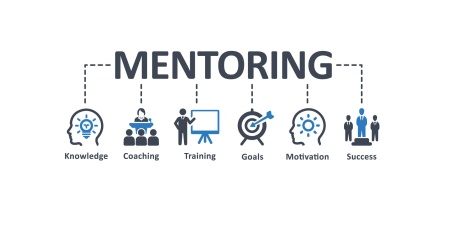By Jay Spielvogel, Venator Sales Group, LLC
“The greatest sales call our new reps make is on us during the interview. Everything goes down-hill once we hire them.”
“At best, our new salespeople are glorified pre-sales relationship managers. They deliver quotes and proposals without any qualifying or critical thinking.”
Unfortunately, these are all too common complaints we hear from sales managers across the globe. In truth, very rarely is the interview a “great” sales call on the part of the sales rep. More likely, it was simply the culmination of a “bad” buying process, where we end up getting exactly what we are asked for. The solution is to develop a list of non-negotiable traits for any prospective new sales rep hire.
Consider the short list of traits most companies have for new sales hires: technical knowledge, experience in the industry, professionalism, and follow-through. These attributes are, without question, important. And yet, they are a blueprint for a “pre-sales relationship manager.”
In order to hire the best sales reps who can generate new business and be successful in today’s complex, multi-constituent selling environment, we need to revise the way we search for and screen prospective new salespeople.
Most companies have a clear set of expectations for new sales reps:
- Targeting and penetrating new strategic accounts
- Digging deeper into the business drivers behind the technical needs
- Executing coaching direction
- Navigating and negotiating access to key stakeholders
- Carefully managing a pipeline of opportunities to closure
However, these expectations are not taken into account when hiring and interviewing. Finding reps that can execute these behaviors requires a very specific list of traits and characteristics. These should be non-negotiable; all the traits must be present. The four most critical, non-negotiable traits necessary to be a successful salesperson, regardless of industry, are Coachability, Aptitude, Fearlessness, and Engaging; an acronym we call CAFÉ.
Coachability
Gone are the days where being a great rep was based solely on the strength of the salesperson’s relationship with technical and purchasing people. Today, there are many environmental changes affecting every sales team—the least of which is global competition and more complex purchasing processes.
In order to drive consistent revenue in this ever-changing selling environment, a professional salesperson must be able to receive and execute guidance and mentoring. This new environment demands a team effort with strong “sideline” coaching from sales management. This shift is away from the “lone ranger,” ego-driven salespeople that resist any form of coaching or accountability and dismiss it as unnecessary micro-management.
Aptitude
Besides needing to absorb technical data, a salesperson must have an aptitude for assimilating a tremendous amount of information related to the constantly shifting client business and operational environments. Successful selling requires the ability to link the economic value of your company’s solutions to operational results.
Many salespeople with strong technical backgrounds lack the competency or desire to integrate the non-technical value messaging into their sales process. Unfortunately, when the aptitude for “business-drivers” is lacking, a salesperson will simply pass along their proposals to the technical champion, hoping they will be successful at gaining the necessary internal approvals.
Fearlessness
A successful salesperson must be fearless. They must be comfortable executing any sales process that requires a complex, multi-stakeholder selling strategy. Regardless of training, many salespeople still lack the assertiveness and conflict management necessary to execute.
Typically, most salespeople can perform well in training but then falter when executing in the field. When questioned by their managers about their lack of performance, they justify non-action with a lack of time or a fear of overstepping and upsetting their main contact.
Effective salespeople are able to overcome their fear and break out of their comfort zone. They are willing to ask the tough questions, negotiate for high-level access and maintain control of the sales process.
Engaging
A successful salesperson must have an engaging personality, not to be confused with the “gift of gab” or being a “presentation guru.” An engaging salesperson is one with the ability to draw others into a dialogue with a steady two-way flow of information. An engaging salesperson will have a strategy for asking guided questions and “pivoting” appropriately to the other person’s answers regardless of whether the meeting is with a lower-level manager, director, VP, or a member of the C-suite.
A salesperson that lacks this ability will tend to lull their prospect into a passive listening mode while they present features, benefits and pricing. A non-engaging salesperson will come away from a sales call feeling confident that they’ve made a strong case and that they were well received as a result of their knowledge. Conversely, a strong salesperson with an engaging communication style will exit every meeting with detailed information uncovered during the meeting including a well-defined set of next steps and action items.
The better approach to finding sales professionals who will be successful is to reconsider the non-negotiable traits. The four traits listed above – Coachability, Aptitude, Fearlessness, and Engagement – are vital when recruiting new salespeople if we are to break the frustrating and tiresome six-month cycle of hiring and firing.
Venator Sales Group is a Sales Consulting, Optimization, & Training firm with a laser-focus on improving every aspect of a client’s sales culture and sales performance. Founded over a decade ago by high-performing, professional sales practitioners, Venator combines a strategic sales management approach with real-world understanding of the factors necessary for success in today’s selling environment. Venator helps companies turn around inconsistent or lackluster sales performance by infusing a sales culture based on accountability, compliance, and critical thinking.










